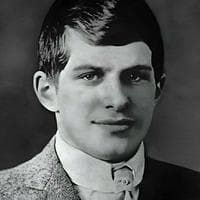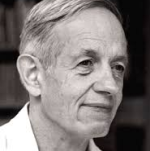Ludwig von Mises mbtiパーソナリティタイプ
個性
"Ludwig von Misesはどのような性格タイプですか? Ludwig von Misesは、INTJ in MBTI、5w6 - sx/sp - 548 in Enneagram、SCOEI in Big 5、 in socionics のパーソナリティタイプです。"
From my observations, Mises has pursued economics as a means to a bigger picture. His central belief is that guided by praxeology, that all human action is deliberate. He ties all his observations to tie this in with his vision in his book Human Action. You could say the reason Hayek (INTP) has been so skeptical is because of Mises's Ni-Te approach that makes leaps into concretely described (Te) ideas converged into singularities (Ni) which is a method likely to ignore refinement of details and elaboration. The following are mostly quoted from the book Elgar Companion to Hayekian Economics as evidence of his great usage of Te in service of his Ni. - Hayek found Mises to be an extraordinarily productive economist and efficient administrator. He was, Hayek said: the kind of man who, as was said about John Stuart Mill, because he does a normal day’s work in two hours, has always a clear desk and time to talk about anything. I came to know him as one of the best-educated and best-informed men I had ever known, and what was most important at the time of great inflation [as Austria and Germany were experiencing in the early 1920s], as the only man who really understood what was happening. - Mises’ already famous Privatseminar, which brought together economists, political scientists, sociologists, philosophers, and historians for wide-ranging discussions on virtually all facets of the human sciences, many of whom became internationally renowned in their particular scholarly fields. - Mises, who through his position at the Chamber of Commerce was well known and highly respected in Austrian business circles, arranged for the financing and legal approval for the establishment of the Austrian Institute for Business Cycle Research - The Institute for Business Cycle Research will never compete with such agencies of economic policy as the Chambers of Commerce. Rather, it will use, in the analysis of statistical data, its entire spectrum of scholarly knowledge in the field of economics, so as to distill truths from mere numbers, irrefutable evidence from the plethora of subjective and corruptible data. Only thus will statistical material have reached a level of qualification and maturity to be considered and employed by economic policy makers. Statistics in themselves are merely instruments for the understanding and exploitation of economic data. Only after a thorough, an objective, and a scientific treatment will such statistical data attain the status of objective truth and serve the common good, and only then will the full value of the efforts of those who collected such data be appreciated . . . The Institute’s findings will offer to all political parties and all politico-economic interests, a solid foundation for reliable decision-making. (Mises, 1926) - It took form over 20 years, from before the time The Theory of Money and Credit originally appeared in 1912, to the early 1930s when he published a collection of methodological essays (Mises, 1933). By this time Mises had formulated an ‘axiomatic-deductive’ conception of human action and choice; constructed a theory of conceivable social and economic orders in the form of a contrast of the alternatives of capitalism, socialism and interventionism; and developed a theory of money, the monetary order and the business cycle. It is true that Mises’ ‘system’ was not presented as an integrated whole until 1940 when he published Nationalökonomie: Theorie des Handelns und Wirtschaftens (Mises, 1940a) in Geneva in the midst of the Second World War, and then reformulated it almost a decade later in its English-language version, Human Action: A Treatise on Economics (Mises, 1949). But nonetheless, together, Mises’ writings from this earlier 20-year period offer a systematic view of man, society, and the economic and social order. - Probably all the characteristic features of his theories – from his theory of money (so far ahead of its time in 1912) to what he calls his "a priorism" . . . all follow directly (although, perhaps, not all with the same necessity) from this central position. Yet, to speak of such a subjectivist approach for analyzing and understanding social and economic phenomena already implies an empirical element in the analysis. It is strange, then, that Hayek failed to see this in Mises’ own writings. Mises in his writings in the late 1920s and early 1930s on the methods of the social sciences had already delineated between the ‘formal’ and abstract character of the universal and ‘a priori’ theorems of economics, and those elements that could only be known from ‘experience’ or ‘empirical’ information.
バイオグラフィー
Ludwig Heinrich Edler von Mises (29 September 1881 – 10 October 1973) was an Austrian-American theoretical Austrian School economist. Mises wrote and lectured extensively on behalf of classical liberalism. He is best known for his work on praxeology, a study of human choice and action.
















